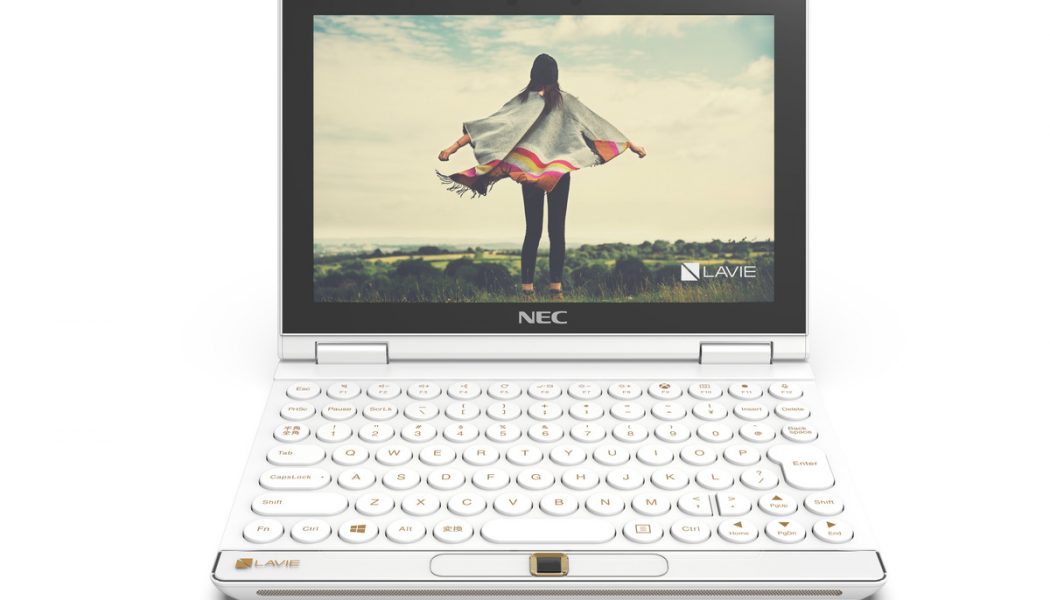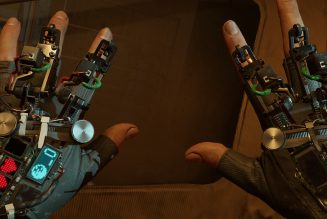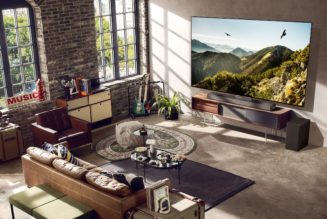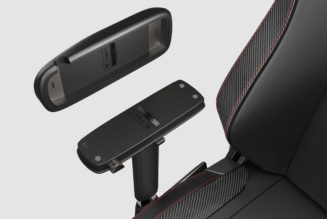Every year at CES, we see devices meant to bridge the worlds of handheld and PC gaming. This year, it’s Lenovo and NEC that are still chasing that dream with the LaVie Mini. The device is a concept laptop-portable gaming console hybrid, and it includes a touchscreen, controller, and dock accessories.
For those unfamiliar with the name, LaVie is a joint venture between Lenovo and NEC, and although most of its products don’t make it to the US, it’s had some hits at CES in the past focused on ultra-light laptops.
By itself, the LaVie Mini seems to be a reasonably powerful and compact computer. The device, if it were real, would have an 8-inch touchscreen with a resolution of 1920 x 1200 and an 11th Gen Intel Processor with Xe graphics. Of course, there’s not really space for a trackpad, but the concept design does make room for an optical touch sensor a la Blackberry.
:no_upscale()/cdn.vox-cdn.com/uploads/chorus_asset/file/22220212/LAVIE_MINI_Facing_Forward_Crystal_White.png)
But acting as a laptop is not really the reason this concept exists. It exists to chase the dream of having a handheld gaming computer, one more powerful than the devices Nintendo has been famous for making.
LaVie has also created a gaming controller accessory, which connects to the laptop after you fold the keyboard back. The controller has the same buttons and layout as the Xbox gamepad, so it’ll be familiar to many players, though the weight probably won’t be: the laptop weighs 1.28 pounds without the controller attached. For comparison, the Nintendo Switch is 0.88 pounds with the Joy-Con attached.
Don’t start hitting the gym to beef up your forearms just yet, though. At the moment, there’s no announced price or release date for the Mini. We’ve seen many PC manufacturers come up with similar concepts and ideas for handheld gaming computers at CES.
Most, like Alienware’s UFO concept from last year, don’t ever end up making it to market, as these prototypes are often less about making viable consumer products and more about experimenting with new ideas and form factors and getting the requisite press attention during CES. Some do go on sale but don’t end up appealing to enough gamers to really make an impact, like Razer’s Edge or the initial Nvidia Shield handheld.
Yet it’s easy to see why companies keep coming back to the idea of a computer that lets you play PC-quality games anywhere. The Nintendo Switch showed that, when done right, handheld gaming can offer a living room console-quality experience people can’t get enough of. Who doesn’t want to be able to play a game while they’re out and about, then come home, put the same device into a dock connected to their TV, and pick back up right where they left off?
That’s an experience, by the way, that the LaVie Mini would support with its optional dock accessory if it ever comes to market.
:no_upscale()/cdn.vox-cdn.com/uploads/chorus_asset/file/22220205/LAVIE_MINI_TV_DOCK_HDMI.png)
For now, that experience (at least for people who want that device to be a PC) will probably remain outside the realm of products they can actually buy. But the LaVie Mini shows that the dream is still alive and may actually come true sooner or later. For now, we’ll have to wait until next week’s CES to see if LaVie releases any more details about the Mini.









